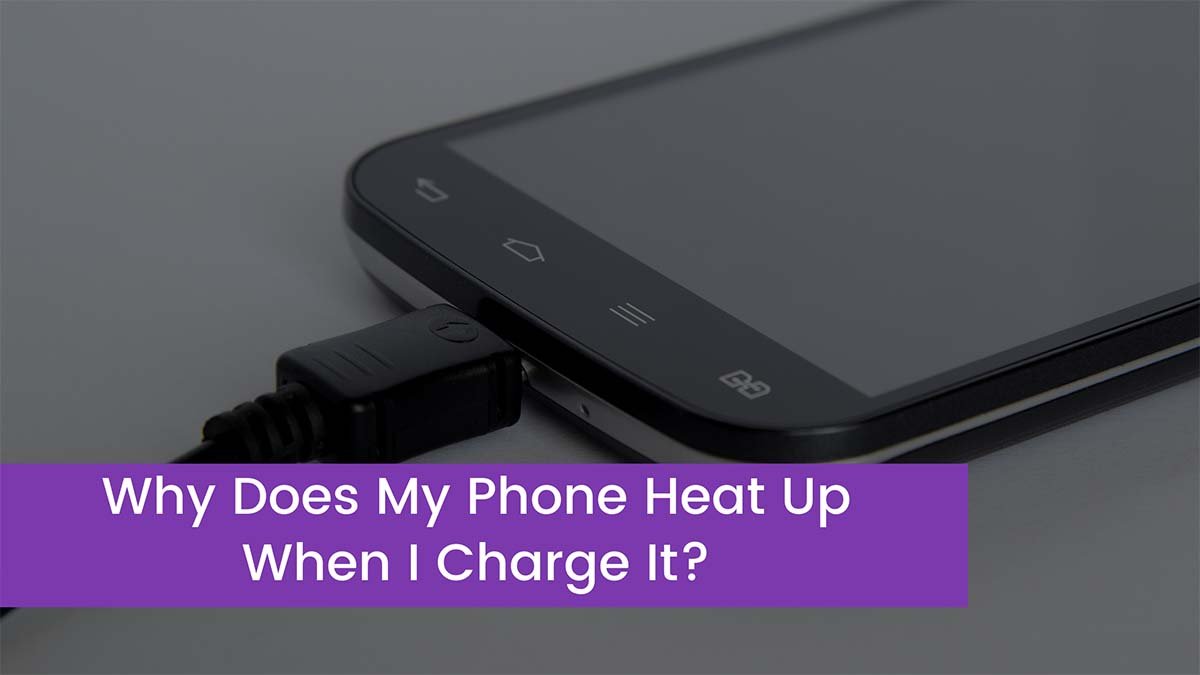To be honest, the reason your phone overheats when charging isn’t obvious. In truth, there are a variety of reasons why your device may overheat while being charged.
Continuous use, according to Huawei, is one of the most prevalent causes of your phone feeling like it’s on fire. While it may appear that sending a few text messages while charging your nearly dead phone is the ideal method to kill two birds with one stone, it actually causes more harm than good.
According to the website, continued use of your phone will generate more heat, causing the temperature of your phone to rise.
Another factor that may influence the temperature of your phone while charging is the location at which it is plugged in. Placing your phone on a bed, sofa, or any other surface with poor heat dissipation will raise the temperature of your device.
Finally, if you’re running many apps while charging, your phone may overheat. We understand how important it is for you to stay connected for a multitude of reasons. Keeping your apps open, on the other hand, will increase your power usage, resulting in an overheating phone.
Apps with bugs might lead to phone overheating
You’re scratching your brain, wondering why your phone is overheating. It’s possible that one or more problematic apps are to blame. Perhaps you’ve downloaded a new app that isn’t compatible with your device. Perhaps a frequently used app has been upgraded, and the new version is causing Android to overheat.
Automatic app updates are convenient, but they can often cause issues like this.
There are two options for you:
- Remove the programme in question.
- Keep an eye out for new information.
Restart your phone after the app is deleted and wait a few minutes before checking it again. If the phone is still hot, try one of the other options listed below.
Using the camera frequently might cause phones to overheat
Using your phone’s video camera for long periods of time can cause it to overheat. This isn’t always the case, and it usually depends on a few additional factors:
- Resolution and frame rate are chosen.
- Brightness of the display
- Use of the camera for a long time
For example, I recently used the front-facing camera to make a video, and my phone quickly overheated. Android phones can overheat if the camera resolution is incorrect. To avoid this, make sure you only use your phone’s camera when necessary, that the screen isn’t too bright, and that you’re not trying to record at a high resolution.
Best ways to avoid heating up phone while charging
Smartphones these days have decent battery life, but you’ll still need to charge them from time to time. You can’t avoid charging your smartphone a couple of times a day, or even a couple of times a week, because some smartphones demand it.
Furthermore, you may have noticed that when you charge your smartphone, it quickly heats up. You should avoid this with your smartphone, and here are a few tips to help you avoid overheating it.
When a smartphone heats up, the internal components, such as the display and battery, are susceptible to harm. It’s best to let them run at room temperature, and if they get too hot, turn them off right away and give them time to cool down before using them again. This will help you considerably extend the life of your smartphone’s battery.
1. Avoid using your phone while it’s charging
Continuous use is one of the most common causes of smartphone heating during a charge cycle. If you continue to use your smartphone while it is charging, it will heat up a lot and you will be unable to use it because it is too hot.
This problem arises because when you first use your phone, it depletes the battery, which is then simultaneously charged and discharged.
If you’re charging your phone at night and don’t expect any calls or crucial texts, simply set it on flight mode. As a result, your phone will charge a little faster because it will not be searching for and connecting to mobile networks. Even in flying mode, it may use a small amount of power and heat up slightly.
If the problem with your smartphone still persists, simply turn it off and charge it again. Modern smartphones, on the other hand, will not turn on when your alarm goes off if you switch them off. It will turn off all of your smartphone’s functionalities and is only suggested if you don’t need them.
2. Use a lower-powered charger
If your phone supports QUALCOMM’s Quick Charging, it’s very likely that your phone came with a Quick charger, which effectively provides increased current and voltage to your smartphone in order to charge it faster.
This feature is quite useful if you’re in a rush, but if you’re charging your phone overnight and don’t care about a quick charge, you should use a non-quick charger instead, since it won’t heat up your phone and will provide a leisurely charge to your device.
3. Change the charging cable
It’s possible that you’re using the same cord and charger for your device as you were before, but your phone is suddenly overheating. In this case, we can infer that the charging cable (USB Cable) you’re using to connect your phone to your charger is broken.
To be certain if the problem is with the cable, borrow a friend’s cable and see if your phone warms up with that as well. If it works, consider one of the other solutions we’ve provided in this post; if it doesn’t, you’ve identified the source of the problem.
Conclusion
In this article, we have concluded that there are a variety of reasons why your device may overheat while being charged. Apps with bugs might lead to phone overheating and using the camera frequently might cause phones to overheat. Along with the reasons we have also listed a few ways that lead you to




